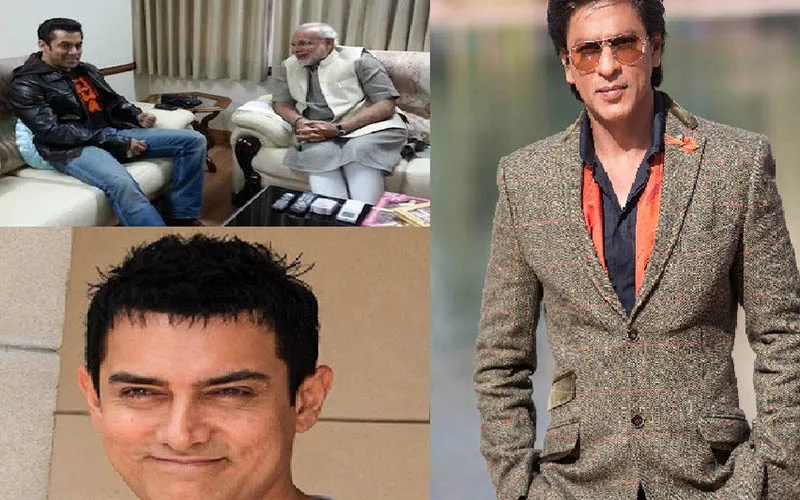-
CENTRES
Progammes & Centres
Location
The intolerant liberal in India considers all alternative opinion to be moronic and the right-wing ideologue describes opposition to their stated position as blasphemy. Both are unwilling to listen to the other, much less understand and accept a civilised debate. Consequently, both are equally dangerous.

It is unfortunate that Naseeruddin Shah feels the way he does about our behaviour towards each other; or that Aamir Khan, Shah Rukh Khan and Salman Khan are deliberately asked questions that amount to them having to re-assert their Indianness. They are national icons who have excelled in their profession, done India proud and have access and ability to make themselves heard. Asaduddin Owaisi, on a visit to Pakistan, was asked the usual patronising questions about the status of Muslims in India. He turned around and told his TV host that he was safe in India because he had the protection of the Indian Constitution.
There must, however, be many persons, unknown and very vulnerable, who feel dispossessed. It is time to look at ourselves in the mirror and realise that it is not the mirror that is smudged. We are. Undoubtedly, this problem needs sustained attention, but not in the selective manner as has been done lately.
We have always had a degree of intolerance in our society, but there has been considerable talk about this in India in recent months. However, figures for the last four years say otherwise. In 2011, there were 500 incidents of communal violence and 91 people died; the figures for the next three years were 668/94, 823/133 and 644/95. Not a single award was returned by any artist or intellectual in protest at that time.
The intolerant liberal in India considers all alternative opinion to be moronic and the right-wing ideologue describes opposition to their stated position as blasphemy. Both are unwilling to listen to the other, much less understand and accept a civilised debate. Consequently, both are equally dangerous. The liberal hates to be reminded of his double standards and his pusillanimity when faced with hard choices; the right-wing ideologue feels he has exclusive rights to patriotism.
In September this year, the chief ministers of Delhi and UP cancelled a musical performance by AR Rahman because of a fatwa issued by a Barelvi group, the Raza Academy. The Jaipur Litfest had its drama in January 2012, when Salman Rushdie was not allowed to speak at the venue because of protests by Deobandhis. The show went on minus Rushdie, who did say that religious extremists who could prevent free expression of ideas and politicians were in league with such persons. No one returned any literary or other award given by the government.
Muslim activists in Kerala axed college professor TJ Joseph's hands five years ago for an alleged insult to Islam. Last month, Hindus were not allowed to perform Durga Puja in a district in Bengal. No one returned any award because of this. True liberalism would require unequivocal protest in all cases of illiberalism which does not happen in India. Instead, selective awakening of collective conscience and the act of returning awards by some, more than three decades after the massacres of 1984 and other similar incidents, raises questions about motives. One can only support Anupam Kher's protests on this issue.
Vested interests have led to institutionalised narcissism which, fearing loss of face and power, resorts to intellectual intimidation of the 'other' with literary op-eds and nightly duels on the TV. Those who complain of loss of freedoms had better recall the days of the Emergency and accept they are able to complain today precisely because there is freedom of speech.
Correctives need instrumentalities. Over the years, the bureaucrat, both at the centre and, much more visibly, at the provincial level, has arrogated to himself powers and privileges of a minor potentate. For this he aligned his fortunes with that of his political masters. The politician has seen opportunism and security in keeping issues of caste and reservations alive. Progress is sought to be achieved by keeping the people backward. Consequently, we are becoming a ghettoised nation where discrimination pays.
Democracies have to be secular and the individual has to be tolerant - religious, agnostic or atheist, but always tolerant. The state must be equidistant and not proximate or supportive of any religion. The individual has to accept discussion as much as the state must accept dissent. Indulgence or appeasement are not tolerance, which is what we have been doing in the name of secularism.
We are a Hindu majority nation, but we are not, and never will be, a Hindu republic. We have politicised intolerance. Instead, all of us need to step out of our religious dogmas, as one extremism or intolerance leads to another.
(The writer is an Advisor to Observer Research Foundation, Delhi and a former chief of Research and Analysis Wing, Government of India)
Courtesy: www.mid-day.com
The views expressed above belong to the author(s). ORF research and analyses now available on Telegram! Click here to access our curated content — blogs, longforms and interviews.

Vikram Sood is Advisor at Observer Research Foundation. Mr. Sood is the former head of the Research and Analysis Wing (R&AW) — India’s foreign intelligence agency. ...
Read More +